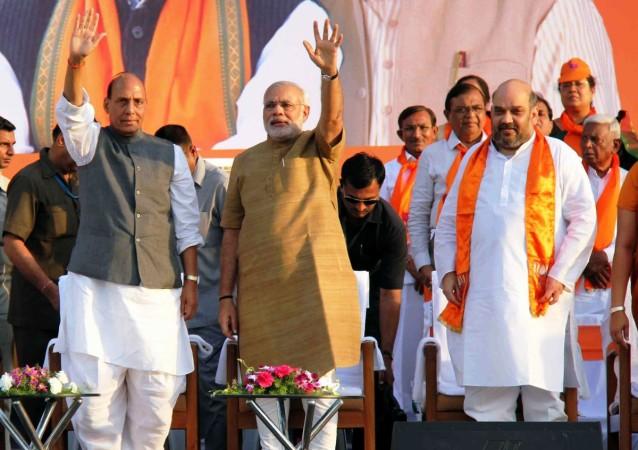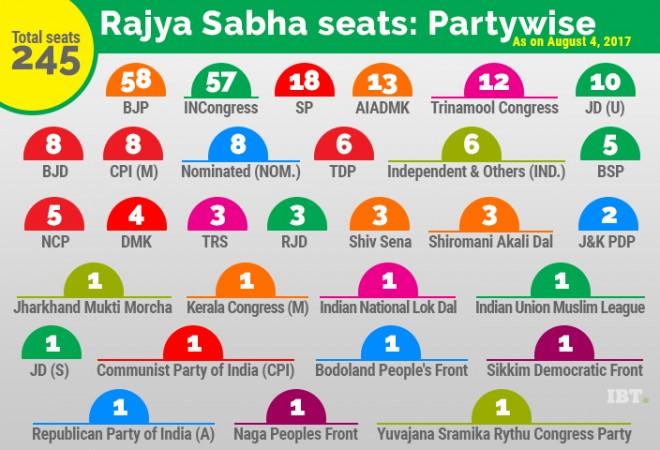
The BJP accomplished yet another feat on Thursday, August 3, when it became the largest party in the Rajya Sabha or the Upper House of Parliament, overtaking the Congress which has been dominating it for almost the entire period since Independence.
The saffron party made history after Sampatiya Uikey was elected to the House from Madhya Pradesh, taking its number to 58 in the 245-member strong House. Although the BJP still has some distance to cover to get to the decisive majority in the House, as it is in the Lok Sabha, but still the fact of it emerging as the largest party in the Rajya Sabha is no less significant.

It is also symbolic that the Congress went to the second position in the Rajya Sabha the year when the Republic completes 70 years. In the seven decades since the country got its freedom from the British rule, things have changed and changed drastically.
The boost in the Rajya Sabha (the BJP's numbers are expected to grow further next year, thanks to the election in UP next year) will help the BJP in passing legislation in the Upper House more easily. The realignment of the JD(U) with the BJP and the prospects of the AIADMK returning to the saffron party's fold will also help the NDA's cause.
BJP's rise a political significance
The BJP's rise has a bigger political significance apart from the advantages it gains in House proceedings. It confirms the fact that the BJP has fast emerged as the No. 1 national party now, replacing the Congress.
Though Rajya Sabha's members are elected indirectly but since Assembly members chose them, the real formula of success in dominating the House lies in winning more Assemblies and the BJP has done it in style over the past several months. Its opponents have even criticised it for "hijacking" power in states where it has not won election but that's a dead logic. Like in every walk of life, opportunities are never lost in politics and the BJP just cashed in on the Congress's callousness in wrapping up things.
The BJP's expansion of base has culminated in its growing clout in the Rajya Sabha and the credit for this goes to the formidable duo of Prime Minister Narendra Modi and his general Amit Shah, the party's national president. The Congress, on the other hand, has seen the exact opposite story unfolding since its pan-Indian base has only been ruined since the 'centralisation drive' of Indira Gandhi.
Ideologically, too, the BJP's rise in the Upper House makes it evident that today's India has undergone a transformation. The Nehruvian legacy has almost been replaced by a right wing majoritarian legacy. We do not know whether this is good or bad but the elevation of the right-wing BJP in the Upper House says enough about the orientation of the new India.

















